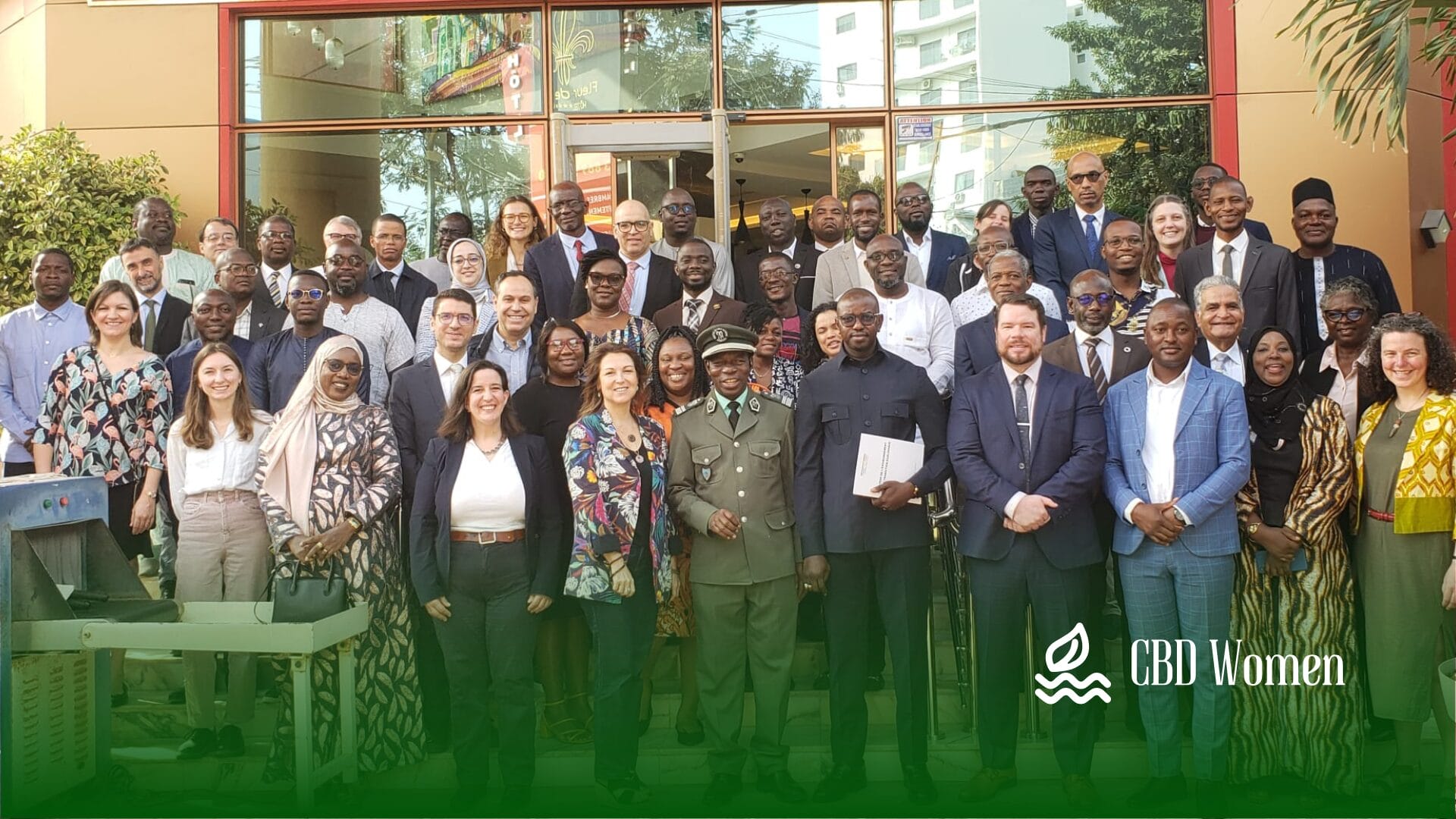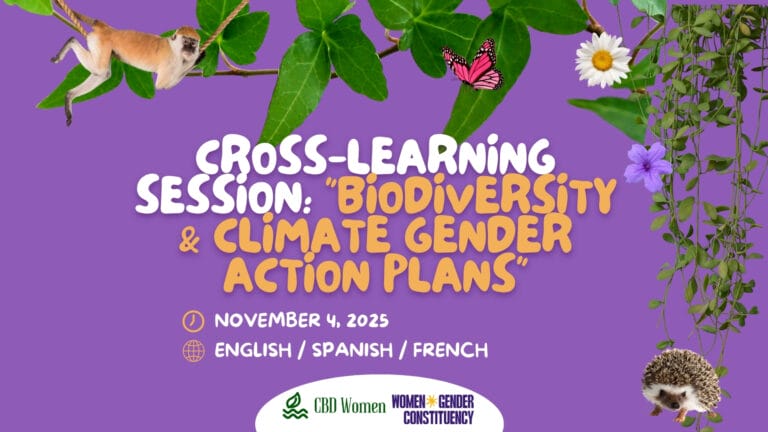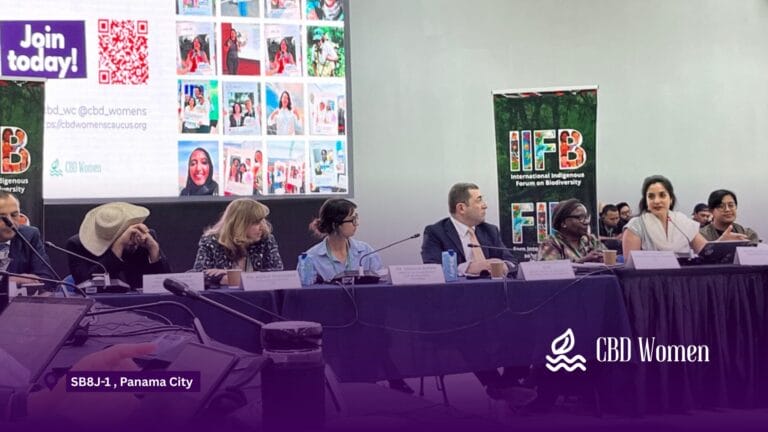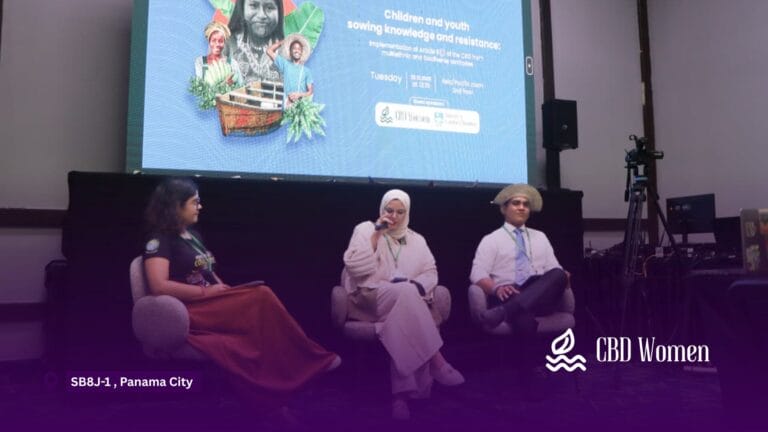By Marie Angèle Taïwo AKOWE IKPADOUN, Head of Ecological Monitoring at CREDI-ONG and CBD Women’s Caucus member
The Sustainable Ocean Initiative (SOI) fosters partnerships to enhance collective impact, focusing on communication among policymakers, scientists, and local stakeholders to achieve the Aichi Biodiversity Targets for marine and coastal areas, particularly Targets 6, 10, and 11.
The SOI Regional Capacity-Building Workshop for West and North Africa, held from February 10–13, 2025, in Dakar, Senegal, brought together representatives from 17 African countries to discuss marine protected area (MPA) management. Participants shared experiences and strategies tailored to their regional contexts.
A key focus was the inclusion of women and girls in biodiversity conservation and MPA management, emphasizing their participation in decision-making and field activities. The workshop, aligned with the Kunming-Montreal Global Biodiversity Framework, featured high-profile participants from over 15 African coastal countries, UNODC, IUCN, MedPAN, NESDA-CA, the Global Youth Biodiversity Network (GYBN), the CBD Women’s Caucus, indigenous peoples, and local community representatives. A critical aspect was ensuring women’s rights to benefit from MPA conservation projects and their active participation in decision-making bodies.
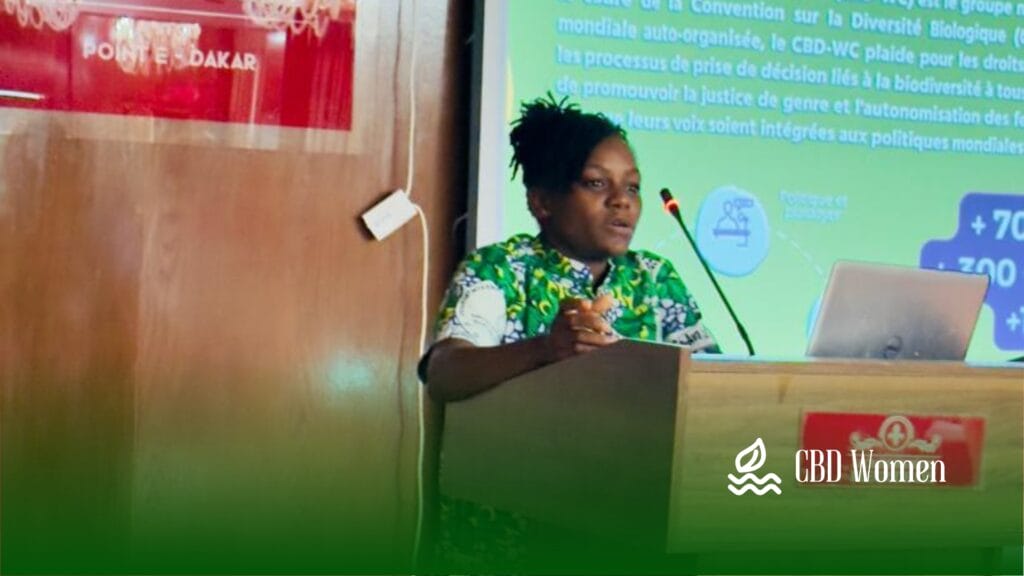
Key Contributions from the CBD Women's Caucus
During the workshop, the CBD Women’s Caucus, represented by Marie Angèle Taïwo AKOWE IKPADOUN from Benin, emphasized the importance of human rights-based approaches (HRBA), advocating for the explicit recognition of women’s rights, including ownership of land and resources, as essential components of conservation and management strategies. The caucus highlighted the need for legal and policy frameworks that guarantee women’s rights to access and control natural resources in marine and coastal areas.
Intersectional Approach
The intersectional approach was emphasized, focusing on addressing the barriers faced by diverse groups of women, especially indigenous and local women. The caucus called for greater visibility, support, and value of women’s participation and leadership in marine protected area (MPA) management at local, national, and regional levels.
Gender-Responsive Governance Approach
Regarding gender-responsive governance, the CBD Women’s Caucus emphasized the need for equitable and gender-sensitive representation in management structures, from local committees to international organizations. The caucus also advocated for programs where women lead conservation projects, such as species monitoring and ecosystem restoration, while ensuring gender-responsive mechanisms in decision-making, including fund allocation for MPAs.
Economic Approach
The economic approach was also highlighted, stressing the importance of gender-sensitive resource mobilization to ensure women direct access to financial resources without bureaucratic intermediaries. The caucus called for projects that combine conservation efforts with economic opportunities for women, such as ecotourism and nature-based artisanal products, and recommended providing microcredits for women-led conservation projects.
Socio-Cultural Approach
The CBD Women’s Caucus also emphasized the need to incorporate women’s ancestral knowledge into modern conservation programs and promote educational events to inspire young girls to engage in environmental protection, featuring influential female role models.
Resilience, Reconstruction, and Addressing Gender-Based Violence (Specific to Conflict Zones)
Finally, in conflict zones, the caucus underscored the importance of supporting women as agents of conservation and ecosystem reconstruction, with specialized training in biodiversity management. The CBD Women’s Caucus also called for mandatory social safeguards to prevent exploitation, harassment, and violence against women in conservation projects, particularly in vulnerable environments.
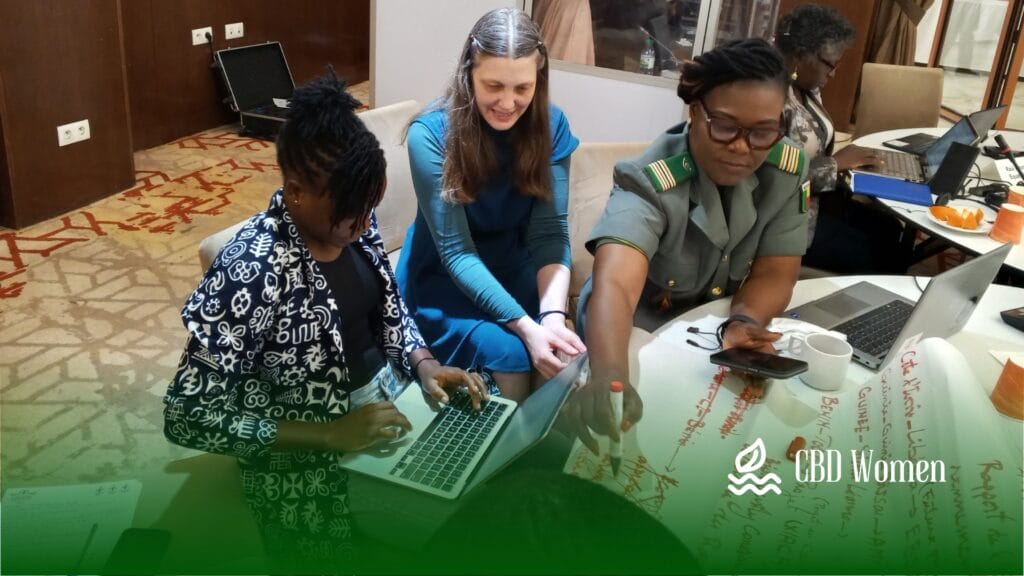
The SOI Regional Capacity-Building Workshop in Dakar was a valuable opportunity to strengthen regional collaboration on marine conservation while advocating for greater gender inclusivity in biodiversity initiatives. By participating in high-level discussions and sharing expertise, the CBD Women’s Caucus reaffirmed its commitment to strengthening women and girls in marine conservation and ensuring their voices are heard in shaping sustainable ocean policies.

